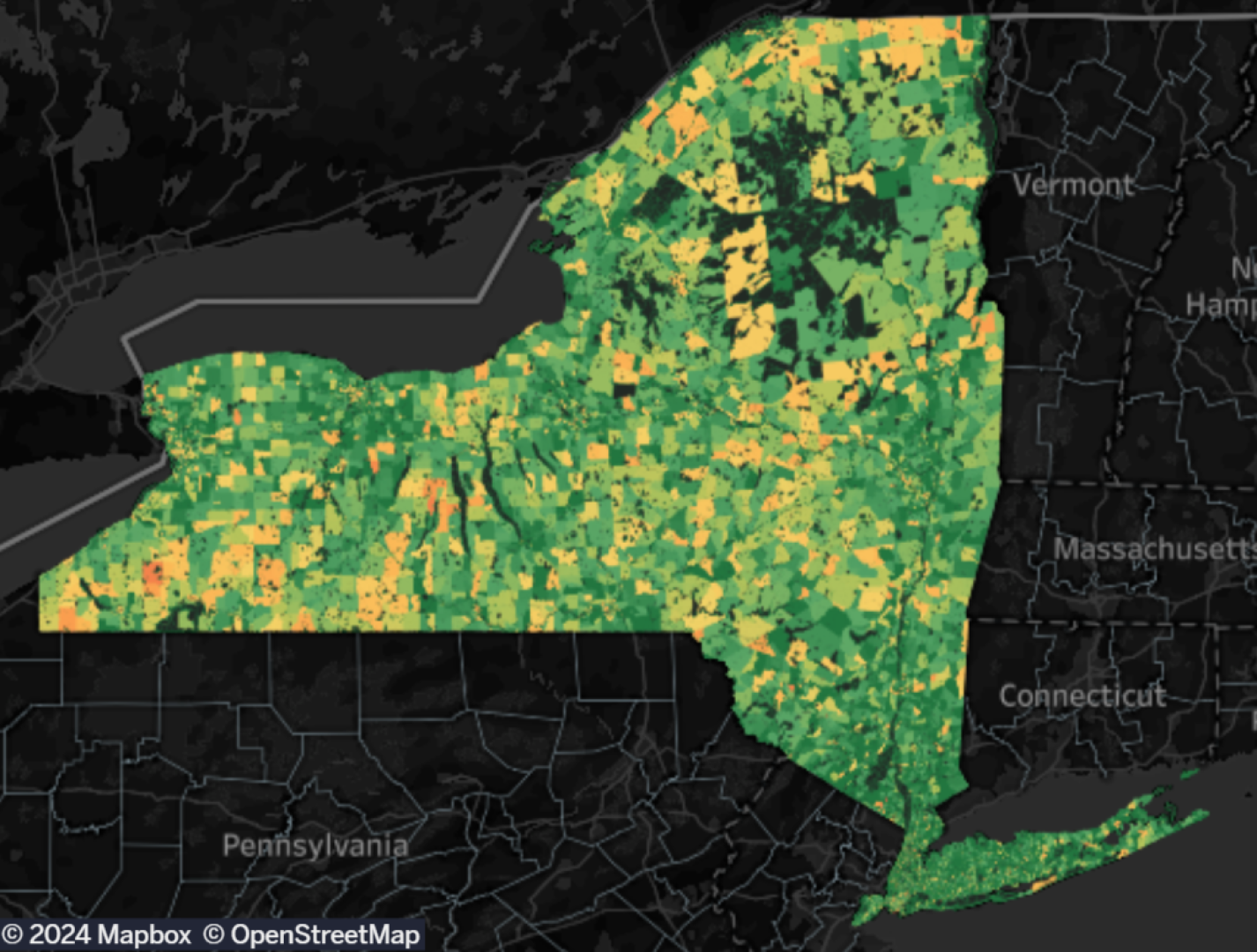News Take Action

Join webinar (5/24): Broadband for All? Mapping and Discussing Progress and Remaining Challenges Across NYS
| Date: | May 9, 2024 |
| Share: |
Community partners, policy makers, and decision makers across NY are invited to join Rusty Weaver, Director of Research, ILR Buffalo Co-Lab, and community leaders in broadband accessibility for a presentation of the Digital Equity Tool and a discussion on opportunities going forward.
The webinar will take place Friday, 5/24 from 12-1:30pm.
In December 2021, The ILR School and Community Tech NY launched the New York State Digital Equity Portal in partnership with the New York State Department of Education, the New York State Library and the John R. Oishei Foundation.
The portal is an interactive, online data mapping tool for communities and individuals seeking data to inform broadband adoption and improve digital equity for millions of New York state residents without wired internet access. New data has been released which has prompted a 2024 update to the portal--showing the progress that has been made toward achieving digital equity across NYS and what still needs to be done.
In 2021, New York enacted the Affordable Broadband Act (ABA), which requires internet service providers to offer broadband internet to qualifying households at reduced prices. A group of trade organizations representing internet service providers sued, arguing that the ABA was preempted by federal law. (Federal preemption means that the state cannot pass a law on the subject). The federal district court agreed with the Plaintiffs’ preemption theories and granted a preliminary injunction barring New York from enforcing the ABA. The matter was appealed to the Second Circuit court of appeals, who overturned the lower court and found that the New York Law is not preempted by the Federal Communications Act of 1934 and found that the NY ABA is not conflict-preempted by the Federal Communications Commission’s 2018 order classifying broadband as an information service. What this means is that New York can put into effect its law which puts a price cap on charging for internet service for low income families.